Cesar Torres's Blog, page 10
January 21, 2013
The Labyrinth, Episode 29 – William Shunn
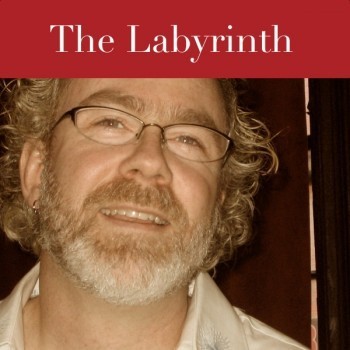 Nebula and Hugo-award nominated author William Shunn sat down with me to talk about writing, his memoir on growing up Mormon, writing workshop environment, and Tuesday Funk, the Chicago Literary series, which he curates once a month at the Hopleaf. We also find out more about his process of writing a novel, and the strangest thing that ever happened to him.
Nebula and Hugo-award nominated author William Shunn sat down with me to talk about writing, his memoir on growing up Mormon, writing workshop environment, and Tuesday Funk, the Chicago Literary series, which he curates once a month at the Hopleaf. We also find out more about his process of writing a novel, and the strangest thing that ever happened to him.
Links
Subscribe and listen
Download and Listen: The Labyrinth, Episode 29 - William Shunn
iTunes
Subscribe via RSS
January 16, 2013
Lucid Dreaming Ledger: Lucid Dreaming and Tibetan Dream Yoga
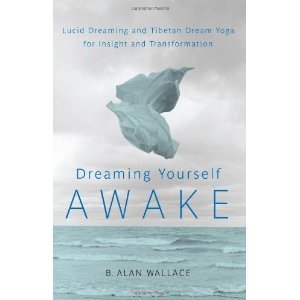 Today I want to take some time to talk about a book that’s been a great read and guidance in exploring lucid dreaming for me. The book is Dreaming Yourself Awake: Lucid Dreaming and Tibetan Dream Yoga for Insight and Transformation by B. Allan Wallace, who happens to be a writer who covers Buddhism, meditation, and related topics. I first read Wallace’s Stilling the Mind, which covers some of the more difficult translations from Tibbetan Buddhist texts for a more Western audience. The connections between Buddhism, secularism and psychology is of huge interest to me as a way to learn more about myself, but also lead a more fulfilling life. Wallace’s writing seems to sit nicely in this intersection. B. Allan Wallace, Ph. D., is a scholar and well-known translator of many Buddhist texts into English.
Today I want to take some time to talk about a book that’s been a great read and guidance in exploring lucid dreaming for me. The book is Dreaming Yourself Awake: Lucid Dreaming and Tibetan Dream Yoga for Insight and Transformation by B. Allan Wallace, who happens to be a writer who covers Buddhism, meditation, and related topics. I first read Wallace’s Stilling the Mind, which covers some of the more difficult translations from Tibbetan Buddhist texts for a more Western audience. The connections between Buddhism, secularism and psychology is of huge interest to me as a way to learn more about myself, but also lead a more fulfilling life. Wallace’s writing seems to sit nicely in this intersection. B. Allan Wallace, Ph. D., is a scholar and well-known translator of many Buddhist texts into English.
Dreaming Yourself Awake stands out above other books, because it is thorough in its methods, and because it goes into a fair amount of detail on the reasons Buddhist practitioners might want to lucid dream. There is a long, ancient tradition of using lucid dreaming in Tibetan Buddhism. It’s known as dream yoga. Its benefits include being able to reach deeper levels of being, in parallel to what one might be able to achieve in daytime using a meditation practice.
Wallace warns against wanting to lucid dream for selfish reasons, and I agree there. The self discovery, and the potential to achieve insights is probably a better path to take. What’s so important too, is that Wallace makes it very clear that many of these Buddhist teachings point out that our waking world may be just as impermanent and inaccurate as the dreaming world. In fact, the book suggests that the states of dreaming or deep sleep may help bring us closer to enlightenment than that of the waking state, where our ego tends to rule.
I don’t think you have to be a Buddhist to enjoy Wallace’s book, and it’s a fascinating read that touches on elements of cognitive science, psychology and other sciences. It is thankfully not a new age book. I am skipping those at all costs. I’m going to see if I can get Alan to do an episode of The Labyrinth with me.
Reading this book prompted me to take the following steps:
Keep the consistency I have implemented with my dream journal. I write my dreams every single day
Sign up for a meditation class. The milestones outlined in the book don’t just happen magically through lucid dreaming. A meditation practice is encouraged, so here I go as I begin to do it on my own at home (and with a class, too).
In other news, my dream journaling is going way better now. I am experimenting lots with diet and teas, and the removal of heavy meals before bedtime is doing wonders. Last night I even had 2-3 dreams in one night. Some have some lucid elements, but like I mentioned before, I am not always 100 percent sure I am being lucid in my dreams.
How are your dreams going lately? Have any of you started keeping a dream journal in 2013?
January 13, 2013
The Labyrinth, Episode 28 – Bob Curran
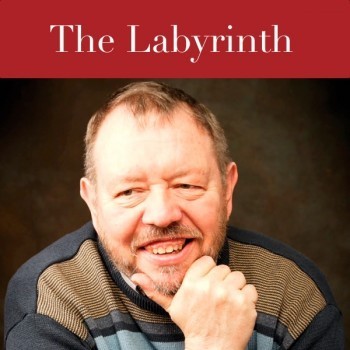 Bob Curran is the author of American Vampires: Their True History from New York to California, a book dedicated to the folklore surrounding vampires in U.S. Culture. Dr. Bob Curran is no stranger to these myths. He has also written field guides to werewolves, dark fairies, and more. Bob talked to me from Northern Ireland about his forays into the anthropology and cultural factors surrounding superstition, as well as how he is involved with bringing social justice to the world (when he’s not writing his books on the supernatural). Bob also shares a a horrific little strange tale, which seems to be interrupted on Skype by…fairies? Join us in this episode of the Labyrinth. Also, don’t forget you can now reach us at labyrinthcast at gmail com! Send us an email.
Bob Curran is the author of American Vampires: Their True History from New York to California, a book dedicated to the folklore surrounding vampires in U.S. Culture. Dr. Bob Curran is no stranger to these myths. He has also written field guides to werewolves, dark fairies, and more. Bob talked to me from Northern Ireland about his forays into the anthropology and cultural factors surrounding superstition, as well as how he is involved with bringing social justice to the world (when he’s not writing his books on the supernatural). Bob also shares a a horrific little strange tale, which seems to be interrupted on Skype by…fairies? Join us in this episode of the Labyrinth. Also, don’t forget you can now reach us at labyrinthcast at gmail com! Send us an email.
Subscribe and listen
Download and Listen: The Labyrinth, Episode 28 – Bob Curran
iTunes
Subscribe via RSS
Links
Bob Curran’s site
American Vampires: Their True History from New York to California
January 11, 2013
Should I Listen to Music While I Write?
 The answer to this question has always been yes, for me.
The answer to this question has always been yes, for me.
Many writers report being able to write well under the influence of music. When I was in my early twenties, I shied away from trying it, thinking I had to “concentrate” while I wrote. But I couldn’t stay away from music. In waking life, I need music around me all the time. It’s one of the best things in life for me, in fact. So, when I started writing my fiction with headphones, and I actually got into the groove while listening, I was relieved.
How does this process work? I don’t know. I can tell you that not all music works for me. Only some. Here’s some of what I’ve discovered:
I have to listen to music that I know really well. This means stuff that I have put into heavy rotation over the years works well. When I know the music by heart, it tends to melt into the background as I write.
I need drum-heavy music. Dub, house, techno, and even salsa really work for this. The drumming really provides a soothing groove that lets me fixate on the writing.
I can’t have new stuff in the mix. New music with new lyrics will distract me, and that’s not what I want or need while writing.
I need for these playlists and mixes to “loop” while I write. I will create a playlist and set it on repeat, over and over and over. This sounds strange, but it induces a bit of a trance that will let me work undisturbed for up to 3-4 hours.
While I’m editing, proofing or copy-editing, though, music tends to not be as useful. These activities require more detailed focus, and I find that I pay more attention to them in silence. But for the first 3-4 drafts of a novel or short story, music does the trick.
Here’s the latest playlist I have on rotation as I work on my new novel. It’s publicly available on Spotify, so feel to subscribe to it if you like.
So, what works for you? Are you able to listen to music while writing? I want to know more about that. Author Gra Linnaea chatted with me recently about this same topic. Maybe you’d like to chat with me also on The Labyrinth. Or you can tell me what works for your writing process in the comments. Send me some playlists, too.
January 10, 2013
The Labyrinth podcast now has a dedicated email address!
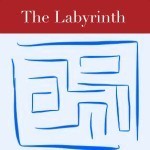 Your feedback about the show is so important. If you want to tell me how much you love or hate the show, suggest guests or topics, or even suggest ways to go into season two, please send me an email.
Your feedback about the show is so important. If you want to tell me how much you love or hate the show, suggest guests or topics, or even suggest ways to go into season two, please send me an email.
You can now reach The Labyrinth podcast at labyrinthcast at gmail dot com. Get in touch! And see you soon in the virtual studio.
January 7, 2013
Lucid Dreaming Ledger: Using teas to induce lucid dreaming
Here’s a quick update on how lucid dreaming is going (or not going) for me. I did well in November but December sucked. I tried out some new things, including tea. Check out the video below, where I explain what happened:
Related links
Scientific American: How can you control your dreams?
Below are some links from to the teas (Yogi Brand) that I bought and used.
January 4, 2013
The Labyrinth, Episode 27 – Robert Pobi
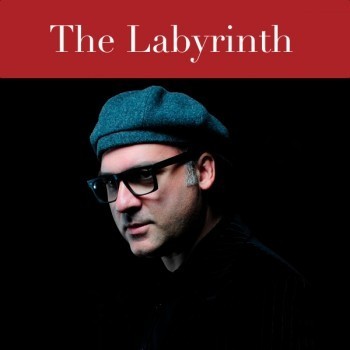 Author Robert Pobi knows monsters. He creates some really sinister monsters in his books, and in today’s Labyrinth I get to talk to Robert one on one about his process. Robert’s energy is unparalleled. This same energy provides him with an incredible work ethic and enthusiasm for his novels. You should check out Robert’s breakthrough serial-killer novel Bloodman" target="_blank">Bloodman, as well as his new monster book, Mannheim Rex. Robert minces no words — when you know what you want to go after in life, you have to do it, and you have to do it now. Join me as we kick off the second half of The Labyrinth in this 27th episode.
Author Robert Pobi knows monsters. He creates some really sinister monsters in his books, and in today’s Labyrinth I get to talk to Robert one on one about his process. Robert’s energy is unparalleled. This same energy provides him with an incredible work ethic and enthusiasm for his novels. You should check out Robert’s breakthrough serial-killer novel Bloodman" target="_blank">Bloodman, as well as his new monster book, Mannheim Rex. Robert minces no words — when you know what you want to go after in life, you have to do it, and you have to do it now. Join me as we kick off the second half of The Labyrinth in this 27th episode.
Subscribe and listen
Download and Listen: The Labyrinth, Episode 27 – Robert Pobi
iTunes
Subscribe via RSS
Links
Robert’s books at Amazon (your purchase via these links help support the show)
January 3, 2013
Happy new year!
It’s 2013 now, and that means that we are back up and running.
New episode of The Labyrinth arrives this weekend.
I am working on a new novel.
I have more posts about lucid dreaming arriving, on Mondays, as you well know.
And I AM GLAD TO SEE YOU AGAIN, READERS AND LISTENERS.
How was your holiday season? What’s in store for you in 2013?
December 22, 2012
Back in the New Year
Okay, the time has come to rest a bit. I will be back in January 2013 with all new episodes of The Labyrinth, as well as new writing updates and lucid dreaming ledger entries. Have a great season.
December 20, 2012
The Labyrinth, Episode 26 – Ryan Hurd
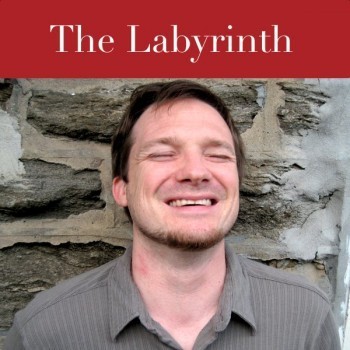 In this episode of The Labyrinth, Ryan Hurd joins me to talk about dreams. Ryan is a dream researcher and lucid dreaming educator. Ryan runs dreamstudies.org, and he brings a very positive attitude to the notion of lucid dreaming as I ask him about dreams’ role in the body, shocking dreams like those in sleep paralysis, and more. We talk about why our culture doesn’t talk enough about dreams, and also about the strangest thing that ever happened to him. Ryan also mentions the ways in which the current interest in ayahuasca intersects with exploring the mind via dreams. If you’ve ever wanted to learn more about the role of dreams in our lives, or if you ever wanted to learn how to lucid dream, Ryan is a great teacher.
In this episode of The Labyrinth, Ryan Hurd joins me to talk about dreams. Ryan is a dream researcher and lucid dreaming educator. Ryan runs dreamstudies.org, and he brings a very positive attitude to the notion of lucid dreaming as I ask him about dreams’ role in the body, shocking dreams like those in sleep paralysis, and more. We talk about why our culture doesn’t talk enough about dreams, and also about the strangest thing that ever happened to him. Ryan also mentions the ways in which the current interest in ayahuasca intersects with exploring the mind via dreams. If you’ve ever wanted to learn more about the role of dreams in our lives, or if you ever wanted to learn how to lucid dream, Ryan is a great teacher.
Subscribe and listen
Download and Listen: The Labyrinth, Episode 26 – Ryan Hurd
iTunes
Subscribe via RSS
Links
Dreamstudies.org
Stilling the Mind: Shamatha Teachings from Dudjom Lingpa’s Vajra Essence
Dreaming Yourself Awake: Lucid Dreaming and Tibetan Dream Yoga for Insight and Transformation



